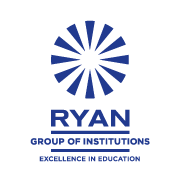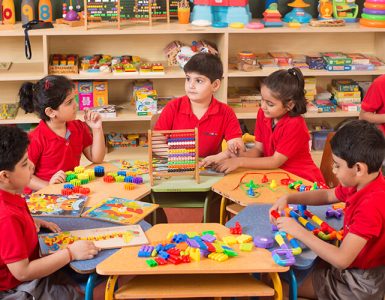Social-emotional learning, a term which has become a cornerstone in contemporary educational discussions, carries within its fold a paradoxically under-emphasized component: failure. As we navigate the discourse surrounding education and personal growth, it becomes imperative to critically examine our perception of failure, often seen as an adversary rather than an ally.
The orthodox perspective paints failure with a broad stroke of negativity, its presence synonymous with deficiency and defeat. This perception, is not just limiting, but fundamentally flawed. It’s high time we dismantle these erroneous views and reconstruct our understanding of failure, acknowledging its integral role in fostering a robust growth mindset.
Consider the commonplace act of learning to walk. A toddler’s countless stumbles aren’t seen as failures, but as essential stepping stones towards eventual success. This outlook, unfortunately, often doesn’t extend to our broader educational perspective.
John Dewey, a renowned educational reformist, poignantly remarked,
Failure is instructive. The person who thinks learns quite as much from his failures as from his successes.
This sentiment, echoing down the annals of educational theory, is especially pertinent today as we grapple with cultivating resilient, adaptable minds.
In this quest, nurturing a growth mindset emerges as a powerful tool. To view failure not as a dead-end but as a springboard towards learning is to empower individuals to embrace challenges rather than shying away from them. It enables the development of key tenets of social-emotional learning – resilience and adaptability.
Schools are tasked with the mammoth responsibility of creating an environment that encourages this perspective. It is here that failure must be reframed from a mark of shame to a testament of effort, thereby nurturing an ethos conducive to social-emotional learning.
Interesting to note is the etymology of the word ‘failure’. Originating from the Latin ‘fallere’, it signifies ‘to trip’ or ‘to fall’, underscoring the significance of the journey, rather than the destination. This echoes the fundamental principle of growth and learning: the process matters more than the result.
It is crucial, then, that we realign our collective understanding of failure. As parents, educators, and influencers of the next generation, let’s shift our view of failure from a fear-inducing spectre to a trusted companion in the journey of lifelong learning. Engage with us in this vital conversation. Together, let’s redefine the concept of failure, and in doing so, shape the future of education.
Understanding Failure in the Context of a Growth Mindset
Our societal fabric, especially within the realm of education, often projects failure as a pariah, a state to be abhorred and vehemently avoided. This entrenched perception, steeped in traditional thinking, relegates failure to a position of dread. Such a monochromatic understanding warrants an urgent revision.
The sphere of growth mindset, a beacon of progressive thinking in education and psychology, serves up a starkly contrasting definition of failure. No longer is it the antithesis of success, but rather an enlightening feedback mechanism. Failure, within this framework, transfigures into a tool of understanding, a compass guiding our focus towards areas ripe for improvement.
Consider the case of assessments, a daunting labyrinth for most students and teachers alike. Our standard educational narrative eulogizes perfect scores, casting a stifling pall over any less-than-ideal performance. This script, riddled with the binary of pass and fail, merits a dramatic rewrite.
A growth mindset flips this narrative on its head. The epicentre of focus migrates from mere score acquisition to understanding and learning. A less-than-perfect performance is no longer a cataclysmic event but an indicator of areas necessitating additional effort. In this light, failure transitions from being an abyss of despondence to a springboard for improvement.
This reframing of failure does not suggest masochistically seeking out defeat, nor does it render the process of handling critical feedback a breeze. However, recognizing failure as an intrinsic part of the learning process equips individuals with the fortitude to face challenges head-on and the humility to grow from them.
Thus, we reach a critical juncture. We must challenge the traditional narrative. Dare to perceive failure not as an end but as an insightful beginning. Embrace the potential growth mindset paradigm shift, with its offering of exploration, stumble, learning, and ultimate growth. It is through this journey, paved with what we conventionally perceive as failures, that we carve our path to success – a success that is nuanced, informed, and truly transformative.
Case Studies: Real-world Examples of Embracing Failure
The narratives of success are often as much tales of perseverance through adversity as they are of triumph. As we embark on our exploration of the interplay between failure and a growth mindset, the stories of remarkable individuals and organizations that have traversed this path with grit and grace will be our guiding stars.
Take, for instance, the curious case of Thomas Edison, whose name has become synonymous with inventive brilliance. The journey to his most illustrious invention, the practical electric light bulb, was not without numerous missteps or ‘failures.’ Rather than letting these setbacks pull him into despondency, Edison regarded them as clarifying what won’t work, a stance reflecting the quintessence of a growth mindset. “I have not failed. I’ve just found 10,000 ways that won’t work,” he famously quipped.
Our gaze shifts next to the basketball court, where Michael Jordan, often heralded as the sport’s greatest player, shares an equally illuminating perspective on failure. “I’ve failed over and over and over again in my life. And that is why I succeed,” he asserts. Through this lens, every missed shot, every lost game, morphs from a crushing defeat into a stepping stone towards success, underscoring the principles of a growth mindset.
Venturing into the field of education, the Finnish system stands as a vibrant example of integrating the growth mindset into pedagogy. Celebrated for its innovative approach to learning, Finnish education fosters a culture where mistakes are not demonized but embraced as natural components of the learning process.
These stories, disparate in their details yet unified in their essence, validate the principles of a growth mindset. They resonate with the transformative potential of failure when perceived not as a dead-end but as a starting point, not as a setback but as a stepping stone towards continuous learning and improvement.
Strategies for Incorporating Failure into a Growth Mindset
As we conclude our journey, we must consider the practical applications of a growth mindset — the strategies for embracing failure. Our theories have been distilled into reality, and this real-world alchemy is nothing short of transformative, encompassing practices like self-reflection, challenge reframing, expectation management, and perseverance.
Self-reflection, often an underappreciated aspect of our hurried lives, gains a new dimension within this framework. It serves as a mirror reflecting our perceived failures, offering insights and drawing out the lessons they hold. This introspection invites us to dissect, to question, and above all, to learn.
Next in our strategic toolkit is the concept of reframing challenges. Suddenly, the intimidating hurdles on our path can be seen as stimulating opportunities, each offering a unique platform for growth. This subtle shift in perception fuels a growth mindset, metamorphosing our fears into an appetite for progress.
But what of our aspirations, our dreams? Here, the wisdom lies in setting expectations that are ambitious yet grounded in reality. By embracing realistic goal-setting, we can save ourselves from the sting of disappointment, allowing ourselves to relish each stride forward while maintaining an unwavering commitment to continual improvement. This approach nurtures an environment where failure, rather than being a cataclysm, becomes an enlightening guidepost on our journey of learning.
However, these steps demand persistence. Resilience, the silent companion of a growth mindset, ensures that every setback is an opportunity, every ‘failure’ a stepping stone to learning and growth. With persistence as our driving force, we can transform our narrative of failure into a saga of continuous progress and expansion.
Crucial to this transformative journey are our institutions — schools, and workplaces. By fostering environments that accept, even celebrate, failure as a part of the learning cycle, they can instil a culture of resilience and continual growth. It’s here, in these spaces, where the principles of a growth mindset can flourish, reframing our relationship with failure.
As our discussion draws to a close, let’s remind ourselves of the potent transformation a growth mindset offers — a redefinition of failure, from a feared end to an enlightening beginning. I urge you to apply these strategies, engage in discourse, share your insights, and help cultivate a culture that recognizes the intrinsic value of learning from failure. In the heart of each ‘failure’ lies the seed of growth, of success.
Together, let’s embrace this journey of lifelong learning and growth, sowing the seeds of resilience and progress with each step we take. After all, as Winston Churchill wisely noted,
Success is not final, failure is not fatal: It is the courage to continue that counts.




